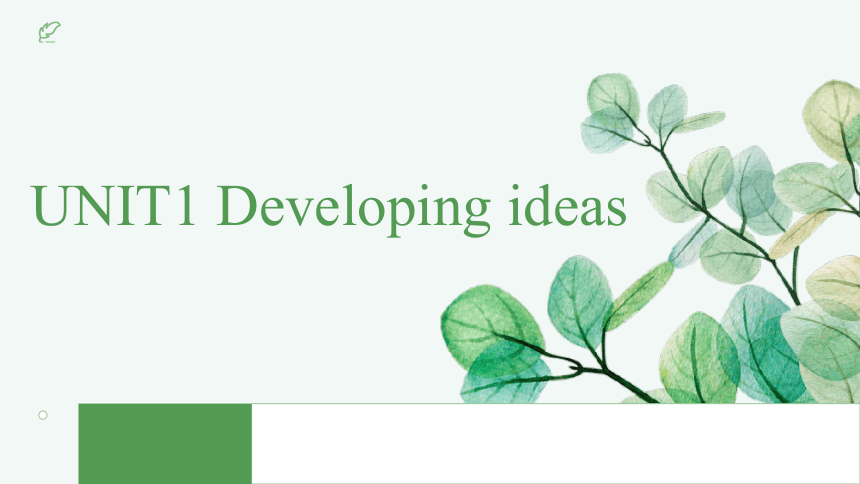(
课件网) UNIT1 Developing ideas Little White Lies 善意的小小谎言 1. How does Student B feel hearing the question 2. Does Student B wish to tell his real mark to Student A Leading in What is the meaning of “white lies” White lies are little lies that we tell to protect others from the truth. 1. Written more than two hundred years ago, these lines by Walter Scott remain one of the most well-known excerpts of Scottish poetry: 两百多年前,沃尔特·司各特写下的这几行文字,如今依然是苏格兰诗歌中最广为传诵的诗句之一: We could also say Although Walter Scott wrote these lines more than two hundred years ago, they are still known by a lot of people as famous excerpts of Scottish poetry. 尽管沃尔特·斯科特在200多年前就写下了这些诗句,但它们仍然被许多人视为苏格兰诗歌的著名节选。 Background information Sir Walter Scott (1771-1832) was a Scottish novelist, poet, historian, and biographer who is often considered both the inventor and the greatest practitioner of the historical novel. The lines quoted in the passage are from his long epic poem Marmion: A Tale of Flodden Field, which is a historical romance in verse of 16th-century Britain, ending with the Battle of Flodden Field (1513). What we can learn from the lines “Oh, what a tangled web we weave, / When first we practise to deceive!” is that lying often snowballs into a bigger problem. If a person starts out by telling one lie, then they have to follow it up with another and another. 沃尔特·斯科特爵士(1771-1832)是一位苏格兰小说家、诗人、历史学家和传记作家,他经常被认为是历史小说的发明者和最伟大的实践者。文章中引用的诗句来自他的长篇史诗《马尔米翁:弗洛登庄园的故事》,这是16世纪英国诗歌中的一段历史浪漫故事,以弗洛登庄园战役(1513年)结束。我们可以从“哦,我们编织了一张多么复杂的网,/当我们第一次欺骗时!”这句话中学到的是,撒谎往往会成为一个更大的问题。如果一个人一开始就撒了一个谎,那么他们就必须接着撒一个又一个。 Oh, what a tangled web we weave, When first we practise to deceive! 啊,蒙骗一旦开始,我们须得编织一张错综复杂的网! 2. We all know that honesty is an important value and that lying is wrong, but who can honestly say that they’ve never told a lie Perhaps we comfort ourselves with the knowledge that most of the lies we tell are “white lies”: little lies that we tell to protect others from the truth. 我们都知道诚实是一项重要品质,也知道说谎是不对的,但是谁又能诚实地说自己从未说过谎呢?也许我们会这样来安慰自己:我们所说的大部分谎言都是“善意的谎言”———我们为了保护他人免受真相伤害的小谎言。 3. We’ve all surely had the experience of someone cooking a meal for us that we don’t like. The majority of us of course don’t tell the truth—we lie and say that the food is “delicious”. 我们一定都有过这样的经历:别人为我们准备的饭菜不合我们的口味。我们大多数人当然不会说实话———我们会撒谎说食物“很美味”。 4. Or if a friend asks us what we think of their new haircut, we say “It’s great!”, even if we think it’s awful. But to what extent c ... ...

